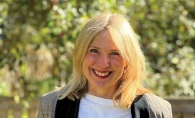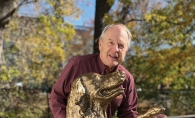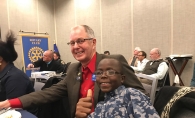Three-year-old Harper Christopherson from Edina was born deaf; hearing loss is one of the most common birth defects in America. But technological advances are allowing some children with profound hearing loss to perceive sound. This technology, combined with early intervention, is helping children like Harper find their voice. Harper is Kyle and Tyler Christopherson’s second child. Kyle experienced a normal pregnancy, but for reasons unknown, Harper did not respond satisfactorily to newborn hearing tests. Follow-up tests revealed that Harper has moderate to severe hearing loss in her right ear and severe to profound deafness in her left ear. This means Harper can’t hear the rumble of a nearby jet engine. Hearing is significantly linked to speech, so the sooner deaf children can access sounds, the more success they’ll have with spoken language. At birth, Harper was considered 10 months delayed because she missed out on hearing any sounds in utero. The Christophersons had a lot to consider for her immediate treatment and therapy. “At first, we reeled from the emotional impact of Harper’s diagnosis,” Kyle says. She credits the Lions Club donor hearing aid program for easing pressure of early decision-making about possible surgery. “We worked with audiologists at the University of Minnesota Amplatz Children’s Hospital. But hearing aids couldn’t amplify enough to provide any benefit to Harper’s left ear.” Harper was determined be a good candidate for a cochlear implant, a surgically implanted electronic device that provides a sense of sound. But sound doesn’t automatically translate into spoken language. Children with cochlear implants still must learn to listen and talk. Enter Northern Voices. Northern Voices is a nonprofit in Roseville helps children with varying degrees of hearing loss learn to listen and speak. Teachers at Northern Voices begin working with babies and parents as soon as a child has access to sound. Northern Voices emphasizes spoken language and does not teach sign language.“We help parents learn to work with their children,” says Northern Voices executive director, Erin Loavenbruck. “Our goal is to provide quality intervention for babies, toddlers and preschoolers so they can enter school with spoken-language skills that match or surpass their hearing peers.”The Christophersons accept sign language as a beautiful and functional mode of communication. “But we are Harper’s advocates,” says Kyle. “We did our research and are committed to giving her the benefit of sound and spoken language. She can make a different choice in the future if she wants.”Loavenbruck notes that sign language can be learned at any age, but spoken language is best learned while young. “Cochlear implants and spoken language were not even an option 20 years ago,” says Loavenbruck. In 1995, only 40 percent of families chose spoken language, according to the American Speech-Language-Hearing Association. That number has jumped to 85 percent in 2005.“The Edina school district has been good to us,” Kyle says. “They provide holistic services and even came to our home. But we wanted to boost Harper’s spoken language”—and after three months of attending the half-day toddler program at Northern Voices, Harper’s vocabulary has increased from three to 150 words. “She is not only repeating words,” says Kyle, but has moments of “spontaneous language production. It’s very touching for a parent.”Kyle practices skills she’s learned at Northern Voices when performing basic tasks with Harper. For example, Kyle will voice each item required to make pudding; mixing bowl, milk, pudding pack. Then she’ll ask Harper, “Who should pour the milk?” Harper replies, “Mama pour the milk.” Saying four words in a series is a great accomplishment: Harper can communicate ideas with spoken language. This gives the Christophersons renewed hope that Harper can thrive in a mainstream classroom someday.Until then, the Christophersons are thrilled with the positive atmosphere at Northern Voices. On Harper’s first day at Northern Voices, she approached another little girl with a similar pink cochlear implant. “Harper looked at the other girl’s device and then reached up to touch her own,” says Kyle. “At Northern Voices Harper gets to see she’s not the only little girl with a magnet stuck to the side of her head. Her implant is no different than wearing glasses.” & All students at Northern Voices pay to participate, but tuition is subsidized through fundraising, and scholarships are available. Northern Voices’ largest fundraiser is an annual golf tournament at the Wilds Golf Club in Prior Lake, Minn.; this year’s tournament will be held August 15. Visit northernvoices.org for more information about the golf tournament, or to make a donation or corporate sponsorship.
Menu
From the August 2013 issue
The Deaf Shall Hear and Speak
Northern Voices helps children with hearing loss gain access to sound and speech.









